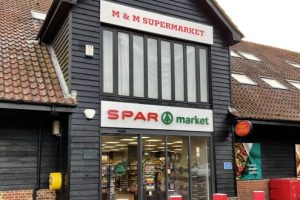In a letter signed by executives from the Co-op Group, Tesco, Morrisons and other retail organisations they argue that a permanent cut in rates would create jobs in 50 parliamentary constituencies most in need of investment particularly in the midlands and north of England.
According to Sky News, the letter urges the chancellor, Rishi Sunak, to use his overhaul of the business rates system to “level up” the economy and highlights business rates as one “critical” barrier to economic development in local communities.
The chancellor has hinted that the current consultation on business rates may result in radical reforms with more of the tax burden falling on digitally generated sales.
The revised government policy on business rates is expected to be announced in 2021. In the meantime, retailers have been given a 12-month rates holiday to help them survive the Covid-19 crisis.
Other retail industry people who have signed the letter include James Lowman, chief executive of the Association of Convenience Stores (ACS), Paddy Lillis, general secretary of retail union Usdaw and Andrew Goodacre, chief executive of the British Independent Retailers Association.
The letter is said to underline the importance to Boris Johnson’s government of tackling the levelling-up agenda for the benefit of the “red wall” MPs who won seats from Labour at last December’s general election.
This is the term used to describe parliamentary seats in Labour’s traditional heartland across the midlands and north of England which have now switched to Conservative control.
The letter highlights Blackpool South as “the constituency most in need of levelling up” and points out that retail now accounts for one in every six jobs there.
According to Sky, the letter also says: “Beyond jobs, the sector drives footfall for other businesses, is one of the largest local taxpayers, provides vital local services (such as pharmacies), supports local charities and provides locations for local people to meet and socialise.
“Shops and shopworkers have been on the frontline of the pandemic ensuring communities have access to supplies of food, medicines, and essential goods and supporting the economy by investing in operations, keeping hundreds of thousands of people fully employed and supporting a network of thousands of small and medium enterprises (SMEs).
“The pandemic has shone a light on retail’s role as an anchor for local communities, but the evidence has been clear for many years.
As an industry, retail is the largest private sector employer and provides proportionately more jobs in constituencies in need of ‘levelling up’.
As other major industries have receded from towns and cities across the north and midlands, retail has become the bedrock of these economies, providing a disproportionately high number of jobs with wages and productivity growing faster than comparable sectors.”
 Talking Retail Grocery and product news for independent retailers
Talking Retail Grocery and product news for independent retailers






